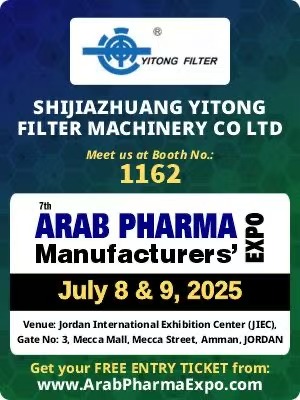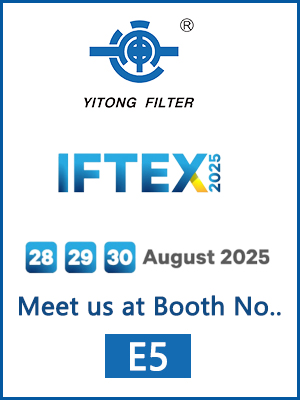HEPA Filter, also called High Efficiency Particulate Air Filters. HEPA filter 99.99% efficient at filtering particles down to 0.3 micrometers, designed to capture microscopic pathogens and particles. Remove an extremely wide variety of contaminants from the air, including particles smaller than a micron, compatible with all industry-standard FFU brands.
High-performance air filters for numerous applications
Definition according to DIN EN 1822-1:2009
EPA filter (Efficient Particulate Air Filter)
HEPA filter (High Efficiency Particulate Air Filter)
ULPA filter (Ultra Low Penetration Air Filter)
Type: Separator, mini-pleat
Frame material: Galvanized sheet, anodized extruded aluminium, wood, stainless steel
Media: Glassfibre, PTFE membrane
Separator material: Paper, Aluminium
Gasket:PU / EVA / EPDM / Gel seal / Dry seal / Knife edge
Filter class:H13 Filter-U17 Filter
Initial resistance: 80-220Pa
Standard depth: 46/90/100/150/220/292mm
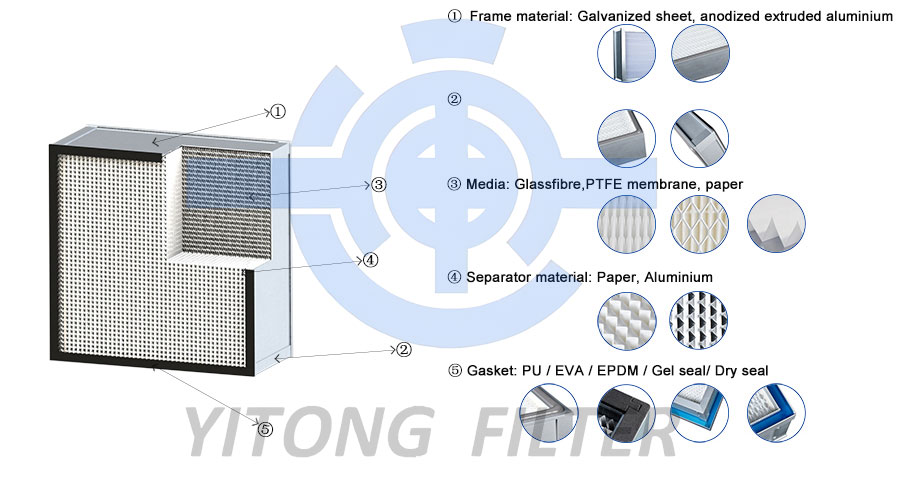
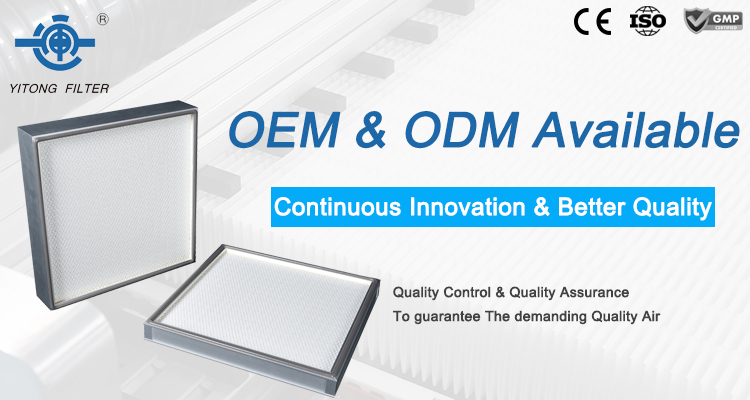
Don’t see a filter that fits your needs? We offer a free design service to help you fully customize high quality air filters that will meet all of your requirements. Size, material, MERV rating, HEPA, medical, we’ve got you covered. In order to inquire about a custom order, head to our contact us page, fill out the form, and one of our filter experts will be in touch with you promptly. We offer Custom Orders!
We have full replacements for air filtration system from major international brands.
Our workshop
HEPA filters processed in clean room; Coarse filters and Medium filters processed in clean workshop. Whole set modern manufacturing equipment.
Our manufacturing facilities

Laboratory instrument: Air filters performance testing system of general ventilation ISO-16890
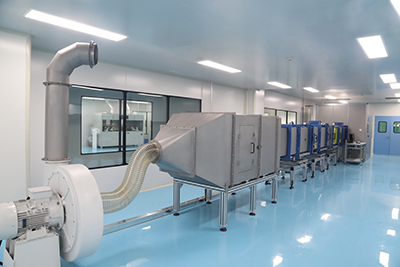
Service: Testing of air flow, initial pressure drop, final pressure drop, filter efficiency, dust holding capability and constant humidity.
Automated HEPA filters scanner test system EN1822-4
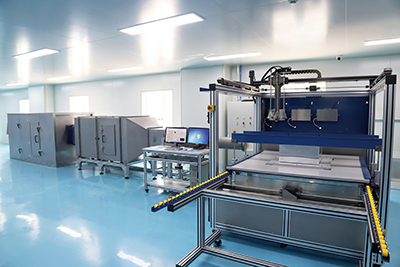
Service: Testing of air flow, initial pressure drop, filter efficiency and leakage or not.
Quality control
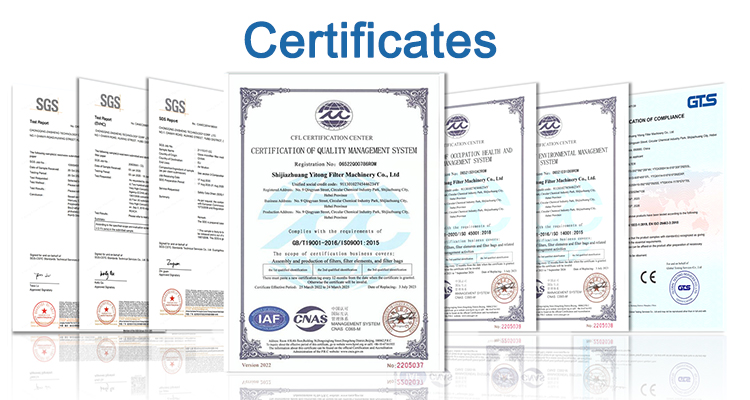
Pressure drop / Air flow / Filter class / Integrity / Humidity resistance tested service preferred
Tested in our laboratory under ISO16890 / EN 1822 / ASHRAE 52.2 / EN 779
Application
Cleanroom ventilation filters in pharma industries, food processing, micro-electronics, etc.
Air purification of hospitals: operating room, ICU, NICU, Negative pressure ambulance, etc.
Air intake filter of Gas Turbines, Fan, etc.
Office building, Metro, Residence, Commercial building

Custom process

FAQ about HEPA filters:
1. What is a HEPA filter?
- HEPA stands for High Efficiency Particulate Air. A HEPA filter is a type of air filter designed to capture and trap very small particles, including dust, pollen, pet dander, smoke, and airborne bacteria and viruses.
2. How does a HEPA filter work?
- HEPA filters work by forcing air through a dense mesh of fibers that can capture particles as small as 0.3 microns in size. The filter traps these particles and prevents them from re-entering the air.
3. What are HEPA filters used for?
- HEPA filters are commonly used in air purifiers, vacuum cleaners, HVAC systems, and cleanrooms to improve indoor air quality by removing allergens and pollutants.
4. Are all HEPA filters the same?
- No, not all HEPA filters are the same. They are classified into different categories, such as True HEPA, HEPA-type, and HEPA-like filters. True HEPA filters are the most effective, capturing 99.97% of particles at 0.3 microns or larger.
5. How often should I replace a HEPA filter?
- The replacement frequency varies depending on usage and the specific device.
6. Can HEPA filters remove viruses from the air?
- Yes, HEPA filters can capture and remove many types of viruses, including some strains of the flu and COVID-19, as they are typically larger than 0.3 microns. However, they are not foolproof, and additional precautions may be necessary.
7. Are there any limitations to HEPA filters?
- HEPA filters are highly effective at capturing particles, but they cannot remove gases, odors, or chemicals from the air. To address these issues, activated carbon filters or other specialized filters may be used in combination with HEPA filters.
8. Can I clean and reuse a HEPA filter?
- Most HEPA filters are designed for single-use, and it is not recommended to clean and reuse them. Attempting to clean a HEPA filter may damage the fibers and reduce its effectiveness.
9. Are there different sizes of HEPA filters?
- Yes, HEPA filters come in various sizes and shapes to fit different appliances and systems. It's essential to choose the right size and type of HEPA filter for your specific device.
10. Are HEPA filters noisy?
- The noise level of a device using a HEPA filter can vary, but HEPA filters themselves do not produce noise. The noise you hear may come from the fan or motor of the device that houses the HEPA filter.
11. Can HEPA filters help with allergies?
- Yes, HEPA filters are known for their ability to remove allergens like pollen, dust mites, and pet dander from the air, making them helpful for allergy sufferers.
12. Do HEPA filters remove mold spores?
- Yes, HEPA filters can capture mold spores, preventing them from circulating in the air. This can be beneficial in reducing the risk of mold-related health issues.
13. Why H13 and H14 HEPA Filters Stand Out as the Best Air Treatment Options?
14. Approved vs. Standard HEPA Filter Types
17. Which Air Filter Reigns Supreme for HVAC Systems: HEPA or MERV?
18. Understanding HEPA, ULPA, MERV, and Pre-Filters for Improved Air Quality
Remember that the effectiveness of HEPA filters can vary depending on the quality of the filter and the device in which it is used, so it's essential to choose a reputable brand and follow maintenance recommendations.
As a leading manufacturer of EPA, ULPA and HEPA filters, we supply solutions for just about every area of application. In pharmaceutical and food production, semiconductor and laboratory technology, hospitals or kindergartens and schools, our high-efficiency filters separate the useful from the harmful.
Any Questions? Give us a call or contact us by e-mail info@yitong-filter.com, our filter experts at any time!
